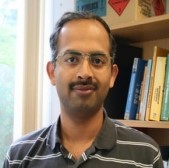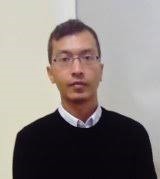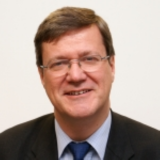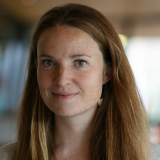Prakash is academic lead for the civil and structures research group at Exeter. His research interests are broadly in the design and management of civil infrastructures, such as bridges. He has significant experience in: the experimental and numerical modelling of flow and scour (erosion) around hydraulic structures such as bridge piers; the use of applied computing techniques including Building Information Modelling (BIM) for construction automation and design; the development of finite element modelling-based and data-driven strategies for interpreting measurements from bridge structural health monitoring; and the application of optimization methods for structural design problems (e.g. design of trusses and moment-resisting steel frames).
Peter Melville-Shreeve
Dr Peter Melville-Shreeve has worked in consultancy, startups and academic roles over the last decade. He works closely with the Chartered Institution of Water and Environmental Management’s (CIWEM’s) policy team to support sustainable water management systems and chair’s CIWEM’s Water Reuse Task & Finishing Group. Much of Peter’s early research focusses on rainwater management systems and the need for dual purpose designs – which can mitigate droughts and floods. His thesis highlighted the opportunities for Internet of Things technologies to be harnessed to reduce water demand AND manage stormwater flood risk. He consequently founded and exited a technology business which developed analytics and control systems to enable such technologies to be implemented at a range of scales.
Shams Rahman
I am a hydrologist interested in groundwater dynamics, surface water-groundwater interactions, and the influence of groundwater dynamics on land surface and lower atmospheric processes.
Rich Crane
Rich’s key research and teaching areas are extractive metallurgy, materials science, nanotechnology and applied geochemistry for a range of applications including the development of novel mining techniques, mine site reclamation, waste treatment, water treatment and contaminant transport.
More information on Rich’s institutional profile
Guangtao Fu
Guangtao’s research is focused on developing and applying new computer models, data analytics and artificial intelligence tools to tackle urban water challenges in water supply resilience, network leakage, flood risk, urban stormwater and wastewater management.
Raziyeh Farmani
Raziyeh specialises in urban water systems modelling, water resources management and asset management and has expertise in multi-objective optimisation of water networks. Her research interests covers evolutionary optimisation, artificial intelligence and data mining.
Gillian Bristow
Gill’s research covers regional economic development; regional economic resilience; local and regional competitiveness; and regional policy.
Katerina Kaouri
Katerina’s research covers deterministic and stochastic modelling; fluid mechanics; mathematical biology; asymptotic methods; aquifer and water resource management modelling
Mark Cuthbert
Mark’s research groundwater recharge; surface water-groundwater interactions; groundwater flow and transport processes; climate-groundwater interactions and paleohydrology.
Slobodan Djordjevic
Slobodan researches the development and application of advanced methodologies and software tools for water management. These include: drainage and floods simulation, impacts of flooding, effects on human health and impacts on road transportation, resilience to diverse extreme weather events in the context of climate change, tidal energy extraction, water quality modelling, river and coastal engineering, water-food-energy nexus, cascading effects between water, waste, energy, transportation and other infrastructure systems, nature-based solutions, and drought risk management.
Michael Harbottle
Michael’s research interests include biotechnology in contaminated land remediation; lectrical properties of soil and groundwater; resource recovery from waste and biogeotechnics.
Albert Chen
Albert’s research focuses on water and human environment systems. Particular focus is on: hydraulic modelling, urban drainage, flood forecasting, innovation technology applications, water-food-energy-ecosystems nexus, climate change impact on critical infrastructure, prediction of water-borne disease, hazard impact and cascading effects assessment, and mitigation and resilience strategies.
Michael Singer
Michael’s research covers ecohydrology; drought and water scarcity; forest health; stochastic hydrology; climate change; floods; Sediment transport; hydrology and geomorphology.
DAVID BUTLER
David’s research area is urban water management, including sustainable and resilient water systems, integration and control and water-energy-carbon interactions.
Nicholas Howden
Nicholas’ research aims to provide a better understanding of how climate, land use and land management affect the quantity and quality of surface and groundwater over the short and long term. Interests include the diffuse transport of nitrate from agricultural watersheds.
Adrian Healy
A UKRI Future Research Fellow, Adrian’s research focuses on the resilience of people and places, urban groundwater and water resilience in sub-Saharan Africa.
Kate Baker
Based in the Centre for Water Systems, Kate is the lead for community engagement on two European Union funded projects, NextGen (Living Labs for Circular Economy in the Water Sector) and LOTUS (International Cooperation for Low-cost innovative Technology for water quality monitoring and water resources management for Urban and rural water Systems in India).

















